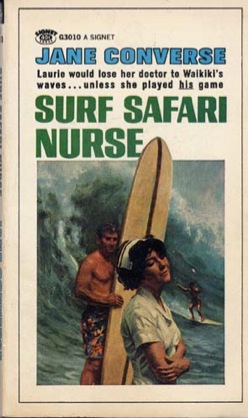
Grading Rubric
This is a course for students who are intensely committed to reading, thinking, and writing well, and regularly sharing their ideas in group discussion. Participation in discussion is a substantial portion of the final grade.
For undergraduate students enrolled in Anth 3950 --
Class participation: 25%
Weekly discussion questions: 25%
Two short papers: 25%
Final paper: 25%
For graduate students enrolled in Anth 7950 --
Class participation: 25%
Weekly discussion questions: 25%
Final Presentation: 25%
Final paper: 25%
Readings
These books are available for purchase at the campus bookstore and are on reserve at the library:
Hirsch, Jennifer. 2003. A Courtship After Marriage: Sexuality and Love in Mexican Transnational Families. Berkeley: University of California Press.
Illouz, Eva. 2012. Why Love Hurts. Cambridge: Polity Books.
Radway, Janice. 1984. Reading the Romance: Women, Patriarchy, and Popular Literature. Durham: University of North Carolina Press.
Yan, Yunxiang. 2003. Private Life Under Socialism: Love, Intimacy, and Family Change in a Chinese Village 1949-1999. Stanford: Stanford University Press.
All other readings are available on the syllabus page of this website.
Films
Seven sessions include films that will add documentary and cinematic perspectives to our discussions. These films should be viewed before the session in which they're included. All films are available to stream from the Collab site, at Kaltura Media Gallary / Site Library / film name.
Discussion Questions
For each session, students are required to submit open-ended discussion questions about each article, chapter, or film that was assigned for each session. These are not meant to be time-consuming writing assignments but are instead opportunities to articulate ideas, float theories, and ask questions that might not otherwise come up in discussion. These questions are due to me via email by 12 midnight on the night before our class session, i.e. Monday and Wednesday at midnight. These responses will be graded on a credit/no credit basis and turning in all questions on time will guarantee full credit. I will refer to the questions in class discussions and post them on the class website. Reconsidering your fellow students' questions might help you find themes for your papers.
I ask you to send me your questions because I am interested in what has made you think, what you think deserves more attention, or what is puzzling. More generally, rather than asking you to take reading quizzes (or threatening you with them!) I want to reinforce the idea that we should all be generating questions as we read, rather than looking for the "right" answers. Please take this opportunity to be creative. Don't be afraid to ask big questions, but keep that day's readings in mind.
Your questions must be sent to [email protected]
Short papers
Students are required to turn in two papers over the course of the semester. These papers should be at least 1400 words and offer critical analysis of the class readings, films, and/or discussions. These papers are due in class on September 26th and October 24th. If you're having trouble finding an idea to motivate your writing, it might help to check out your fellow students' discussion questions on the class website.
Final paper
Students are responsible for determining a topic or theme they would like to explore in more depth for the final paper. The readings and films, our discussions in class, and your fellow students' questions are all productive places to begin thinking about a topic for your final paper. Of course, I would also be happy to talk through your thoughts in my office hours. In preparation for this final paper, students must turn in a one-page description of their intended research. Final papers are expected to be at least 2200 words. I encourage you to be creative, thoughtful, and analytical. The final papers and projects are due at 5:00pm on Friday, December 12th. All details and deadlines are embedded in the syllabus.
Writing Papers
Good learning -- learning that sticks on your ribs -- isn’t something that usually happens in one quick exchange. Usually, actually learning something -- not knowing it, being introduced to it, starting to figure it out, getting confused, asking some questions, trying to puzzle it through, maybe trying to explain it to someone else -- takes a while. In this course, no one is going to ask you to pretend to “learn” something immediately, on the first try. (Of course, if you do, great! Run with it.) For those reasons, I am happy to accept revised and rewritten short papers ** if you meet with me and get permission.** If you are willing to take time to substantially reconsider what didn’t work before (maybe after talking with me or another student, or re-reading course materials), then I am willing to grade it again. If the second grade is higher, the first grade disappears -- no averaging or anything. However, all rewrites must be turned in exactly two weeks after your graded assignment was returned to you. If your paper was originally turned in late, any rewrite, no matter how spectacular, can’t gain back the points it lost for lateness.
If you are considering rewriting a paper, please set up an appointment with me in office hours and we can talk about it. You cannot turn in a rewrite without first meeting with me.
In general, thinking, drafting, editing, and redrafting are all important steps in the writing process that are frequently undervalued. I will reward writing that shows evidence of being more than a one-night stand.
Dropbox = Official Clock
All assignments must be uploaded to your dropbox folder on the Collab site. You will also get your graded assignments returned via dropbox. The dropbox clock -- the time with which your assignment is tagged when you upload it -- serves as the official clock and will be how I judge lateness. It is your responsibility to make sure you’ve uploaded the correct file.

